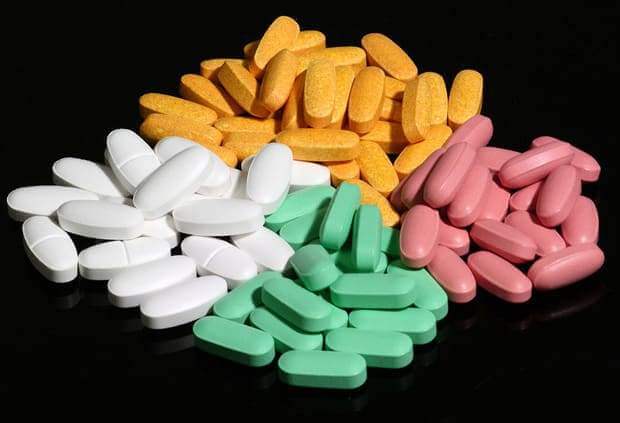Everybody wants better, hotter, and more satisfying sex. You may have seen commercials for medications touting themselves as the next miracle cure for erectile dysfunction, or maybe your inbox is flooded with offers for penis enhancement pills (possibly even if you don't, in fact, have a penis).
Many of these products are gimmicks, preying on the masses' insecurities with porn star members' promises and unlimited attention from the opposite sex.

Other sexual "cures" are more legitimate. For instance, many substances have been shown to increase sexual pleasure by increasing blood flow to the genitals, making orgasms more likely and more intense.
One such substance is L-arginine, which has been shown repeatedly in studies to enhance sexual pleasure. Is this "miracle" ingredient for you? Not so fast. While it may be safe and effective for many individuals, L-arginine might spell disaster for those with genital herpes.
What is L-arginine?
L-arginine is an amino acid, one of the "building blocks" of proteins. It's a necessary acid needed by the human body, and it can be found in red meats and other dietary sources, although the human body also produces it.
It can also be made synthetically in a laboratory, and it's these human-made versions usually found in medications, including sexual enhancers and personal lubricants.
Is L-arginine good or bad for herpes?

The relationship between L-arginine and herpes is a matter of controversy. While studies have been conducted to determine the impact this amino acid might have on the herpes viruses, the results have been downright contradictory.
Early studies concluded that L-arginine might inhibit the growth of herpes outbreaks and even slow down or halt an outbreak once it had begun. Further studies showed that the opposite was true: L-arginine actually seemed to promote outbreaks of herpes sores.
Still, others report that L-arginine may kill the herpes virus and clear outbreaks if applied directly to the affected area within 6 hours of an outbreak. Studies showed that those who applied it later than this saw no such results.
Generally, the medical community considers L-arginine safe to take as a supplement for most people, and it doesn't cause or worsen the herpes virus itself. The impact may have on outbreaks is not totally clear. More recent studies have indicated that it may exacerbate an outbreak or even cause one to occur in many circumstances.

It should also be noted that L-arginine was taken as an oral supplement in many of these studies, which is a different method of application than applying it directly to the skin in the form of a sexual enhancer. Therefore, those with genital herpes are typically urged to avoid L-arginine supplements and lubricants unless otherwise directed by a doctor.
Alternative ingredients to L-arginine in personal lubricants
So what does all this mean for someone who wants a little more action in the bedroom but who doesn't want to risk an outbreak? Are they doomed to a life of boring lubricants and vanilla sex? Hardly.
There is a wide range of natural ingredients that can take the place of L-arginine in sexual lubricants. These work in much the same way: by increasing blood flow to the genitals to enhance sensation.

For example, menthol and peppermint offer a simultaneous cooling and warming sensation while also promoting the genitalia, thus acting as powerful sexual enhancers.
Those with genital herpes should look for lubricants, and that tout the fact that they are L-arginine free. Other thoughts: Remember that herpes can be spread to others, even when you aren't having an outbreak.
For this reason, it's also a good idea to find sexual lubes that are condom friendly so that you can practice safe sex without worry.
Some lubricants are not safe for use with latex, so read labels carefully. You should also be aware that herpes is more contagious during an outbreak, so it is often a good idea to avoid intercourse altogether during these times.












